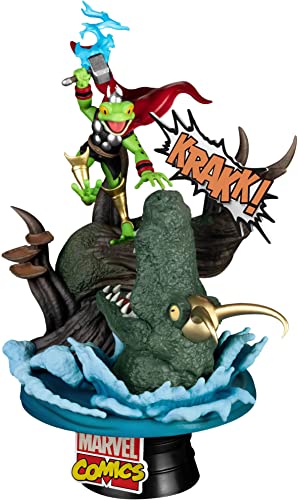While I’m here, holy hell. What an episode. I watched it at 3 AM went it went up and I’m still reeling from it.
The prison break was superb and Kino was absolutely brilliant. There’s something to be said about the nuances in Andy Serkis’ performance. His slow realization and changing face that comes with the news that, no matter what you’ve done or how long you have, you’re never getting out and the way he lets slip the pretense of his position. It’s like we got to see the five stages of grief reflectively play out over two episodes and it was masterful.
I actually liked his speech, though. Specifically because I don’t think it was overly choreographed. I loved the way they played with long pauses and silence and giving the viewer the impression that he’s making it up as he goes along and the end was an absolutely devastating twist of irony. It was such a gut punch that, after all his rousing of the prisoners, and using his naturally authoritative presence that he’d fostered as a means of survival, his story would be bookended by something as simple and mundane as an inability to swim, and yet, it was so utterly fitting that I truly feel it’s all that needs to be said on the matter. I don’t need to see him again. I don’t need Kino Loy to become a key figure in the rebellion to know that he was a key figure in the rebellion.
That’s what this show does so brilliantly and that’s what makes Luthen’s speech all the more potent: it shows the power in the mundane. It’s telling that, at any given point, he can seem like the villain of the story. His steadfast willingness to sacrifice 50 men for the sake of a solitary asset; the purposefulness with which he antagonizes and applies pressure to The Empire when he knows he’s only exacerbating the situation and the unrest it’s going to result in; all of it he’s doing with the same dedication to his cause as The Emperor in executing Order 66. And I think that’s what’s so striking about Luthen. In a way, he’s creating The Empire as much as he is The Rebellion. Because when we meet our cast of characters in the first episode of Andor, things seem dire, but not “Star Wars” dire. It feels like that “uneasy peace” MLK talked about. Where it’s bad, but just good enough that people are willing to accept that…and Luthen wants to burn away the facade.
And the beauty in all of it is that, as near as I can tell, the man behind the curtain holding the match is just a man. He’s got no stake in the Jedi order nor the mythology of The Force: he’s just an antiquities dealer with a grudge, an abundance of time and money, and the will to see it through. The monologue just thematically punctuated all that and it worked brilliantly in tandem with the prison break because everything about this show has been further reaffirming the true cost of a rebellion and what it looks like. It took going to that prison for Cassian to wrestle with the true cost of abandoning his convictions and it highlights how ugly that situation can look from the outside.
I really wish I could better communicate how it felt watching it, but as they were all taking up arms and storming up staircases, I could see both sides of it. I could see people written off as the dregs of society fulfilling new roles as heroes of the Rebellion. The idea that the people Mon Mothma and Luthen and Ackbar and all of the prominent figures in the rebellion would be recruiting more than anyone would be those who have been disenfranchised and most oppressed by the Empire to the point of being willing to fight.
And then I see the other side. Mothma’s preening husband hearing the news of a mass prison break and being chilled by it. As though all the men there were just monsters and criminals and how it’s so upsetting the order of things. Tony Gilroy is able to say so much with so little and it’s absurd to me how talented he is. I don’t care what anybody says. This is my Star Wars. As much as ANH or TESB, this is my Star Wars.


















